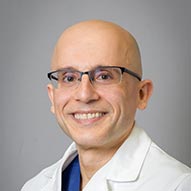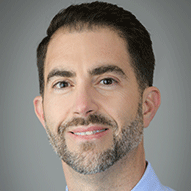Dallas
214-456-2333
Fax: 214-456-2714
Plano
469-303-4300
Fax: 469-303-4310
Park Cities
469-488-7000
Fax: 469-488-7000
Prosper
469-303-5000
Fax: 214-867-9511
Request an Appointment with codes: Cardiology (Heart Center)
Children with congenital heart disease receive the highest level of care at The Heart Center at Children’s Health. We have one of the country’s most comprehensive pediatric cardiology programs. We treat every type of pediatric congenital heart disease.
214-456-2333
Fax: 214-456-2714
469-303-4300
Fax: 469-303-4310
469-488-7000
Fax: 469-488-7000
469-303-5000
Fax: 214-867-9511
Request an Appointment with codes: Cardiology (Heart Center)
Congenital heart disease, also called a congenital heart defect, is the most common birth defect. These heart conditions develop before a baby is born and affect the way a child’s heart looks and works. Some children with congenital heart disease need only monitoring or medications. But about 1 in 3 infants have life-threatening heart defects that require surgery.
Each type of congenital heart disease affects the heart differently. There may be problems with the heart valves, heart walls, heart chambers, nearby blood vessels or a combination of these issues. As a result, a baby’s blood might not have enough oxygen. The blood may move in the wrong direction or sometimes not at all. At Children's Health℠, we treat all types, from the common to the rare and complex.
Some congenital heart defects cause mild issues that may not be noticed until later in childhood or even adulthood, while others can bring serious challenges.
Signs of congenital heart disease may include:
Experts at our Fetal Heart Program perform ultrasounds, called fetal echocardiograms or fetal “echoes,” that can diagnose congenital heart disease while a baby is still in the womb. Fetal echoes are safe for mom and baby.
Many heart defects aren’t noticeable until after a baby is born or even later in life. Before a newborn leaves the hospital, most states, including Texas, require screenings for certain congenital heart diseases that are considered critical. These more serious heart defects can be life-threatening if not detected and treated early.
To detect a critical heart problem in a newborn, doctors measure the baby’s oxygen level. This painless test involves placing sensors on a newborn’s skin (pulse oximetry test). A low oxygen level may indicate a heart problem. Your child will also get a physical exam so the doctor can listen to the heart and lungs and check for heart murmurs (unusual heart sounds) or abnormal pulses.
Diagnostic tests for congenital heart disease include:
Experts are still trying to determine why some children develop heart defects. Potential causes may include:
Depending on the specific type of congenital heart disease, treatments range from medication to surgery to a heart transplant. Our team has the expertise to match your child’s condition with the treatment that offers the best results.
Should your child need surgery, you can feel confident knowing that our doctors successfully perform hundreds of complex cardiothoracic surgeries on the tiniest hearts every year. Plus, your child is in the skilled hands of our dedicated cardiac anesthesia team. Our team safely sedates more than 1,000 children each year for heart procedures.
Other treatments for congenital heart disease include:
After heart surgery, your child recovers in the region’s most comprehensive pediatric cardiac intensive care unit (CICU). Here, our team of pediatric heart specialists carefully monitors your child’s recovery. As much as possible, we make sure you get all the time you need with your baby in the CICU. Some parents choose to stay overnight in one of our family rooms.
The Heart Center brings together all of the specialists needed to diagnose and treat congenital heart disease.





About one in 100 babies are born with a congenital heart defect, making it the most common birth defect.
A ventricular septal defect (VSD) is the most common congenital heart defect. Children with VSD have a hole in the heart wall (septum) separating the heart’s two lower chambers or ventricles. Some small holes don’t need treatment (other than ongoing monitoring) and many close on their own. We perform heart surgery to patch and fix larger VSDs that cause problems.
Critical congenital heart diseases require surgery within an infant’s first year of life. An infant may need multiple surgeries to correct more than one heart defect. About 1 in 4 babies with congenital heart disease have a critical type, such as hypoplastic left heart syndrome or tetralogy of Fallot. We perform advanced heart surgeries to treat all types of critical congenital heart disease.
Various types of congenital heart disease affect a child’s body in different ways. If not properly treated, these conditions can increase a child’s risk for: